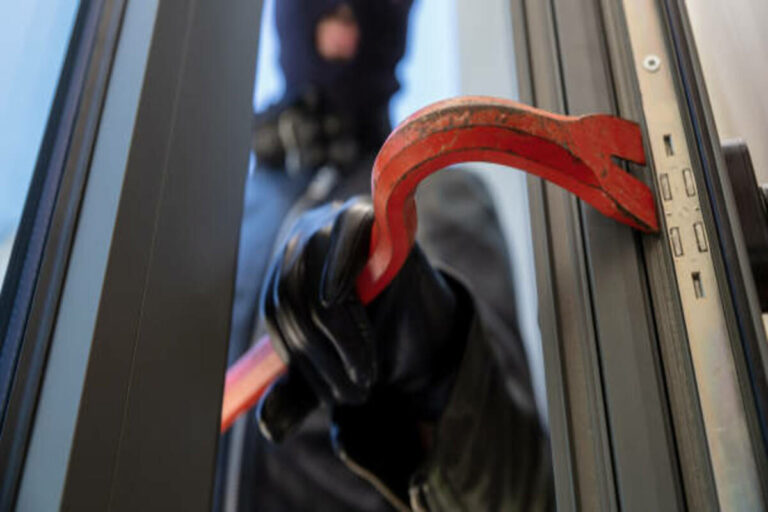Texas Auto Theft Charges: What You Need to Know

In Texas, auto theft charges carry serious implications, defined by a tiered structure based upon the value of the vehicle involved. The penalties for these crimes, ranging from state jail felonies to first-degree felonies, can have long-lasting effects on both personal and professional life, including significant fines and potential imprisonment. This complex legal terrain, with its significant impact on your future, necessitates a thorough understanding and a knowledgeable guide to steer you through. The role of an experienced legal professional in developing an effective defense strategy cannot be overstated.
Understanding Auto Theft in Texas
In the domain of criminal offenses, Auto Theft occupies a distinct place in the state of Texas. It is a pervasive issue that has been consistently addressed by stringent carjacking laws and the implementation of various theft deterrents. This offense involves the unauthorized use or possession of another person’s vehicle with the intention to deprive the owner of its value or use.
Auto Theft is not limited to merely stealing a car; it also encompasses situations where a vehicle is procured through deception or fraud. The Texas legal system is particularly rigorous in its approach to this crime, reflecting its commitment to maintaining safety and order within its jurisdictions.
Texas law enforcement and civilians alike are actively employing theft deterrents to curb the prevalence of auto theft. These range from physical devices that impede vehicle operation to advanced digital systems that disable ignition or track vehicle location.
Understanding the carjacking laws and theft deterrents is essential for residents and visitors alike. These laws not only guarantee the protection of personal property but also serve as a deterrent, reducing the likelihood of becoming a victim of this crime.
Classification of Auto Theft Charges
Building on our understanding of auto theft in Texas, it is important to explore the various categories of auto theft charges that exist within the state’s legal framework. Auto theft categories can range based on the value of the stolen vehicle, the manner in which it was stolen, and whether the theft involved multiple vehicles or repeat offenses.
Theft of a vehicle valued at less than $2,500, for instance, typically falls under the category of a state jail felony. If the value of the stolen vehicle lies between $2,500 and $30,000, it can be classified as a third-degree felony. The charges escalate further if the theft involves a vehicle worth more than $30,000 or if it’s part of an organized crime operation.
Another critical factor in categorizing auto theft charges is whether the theft involved violence or threat of violence. This qualifies as aggravated robbery, a first-degree felony. Theft penalties, consequently, vary greatly based on these categories, and as a result, they indicate the severity of the crime and its impact on the victims. Understanding these classifications can help individuals grasp the breadth of auto theft ramifications within Texas law.
Legal Consequences of Auto Theft
Auto theft offenders in Texas face a myriad of legal consequences, ranging greatly based on the severity of their charges. It is essential for individuals accused of auto theft to understand these potential repercussions, which are often multi-faceted and severe.
The legal consequences primarily depend on the classification of the theft charge, which, in turn, is based on the value of the stolen vehicle. Auto theft penalties can be classified into misdemeanors and felonies, with the latter carrying more severe punishments.
A misdemeanor auto theft conviction can lead to fines of up to $4,000 and/or imprisonment for up to a year. Felony auto theft penalties are considerably more severe. If the vehicle’s value exceeds $20,000, the crime is considered a state jail felony and could result in a jail term between 180 days and two years, and a fine not to exceed $10,000. As the value of the stolen vehicle increases, so do the penalties, potentially leading to a first-degree felony charge.
Moreover, auto theft convictions can influence one’s future profoundly, with implications on employment opportunities, housing applications, and even voting rights. Through knowledge and legal assistance, individuals can navigate these consequences effectively.
Common Defense Strategies
Within the context of auto theft charges in Texas, there are several common defense strategies that attorneys often employ. A detailed examination of surveillance evidence can uncover inconsistencies or inaccuracies that may disprove the prosecution’s case. Additionally, the process of verifying an accused party’s alibi is another vital component of a robust defense strategy.
Analyzing Surveillance Evidence
Scrutinizing surveillance footage often forms an essential part of defense strategies in auto theft charges. This method of investigation relies heavily on advanced surveillance technology, which can provide significant evidence in proving a defendant’s innocence. However, the validity and effectiveness of this approach largely depend on the reliability of the surveillance evidence.
Surveillance cameras installed at various locations like parking lots, streets, and commercial establishments frequently capture instances of auto theft. The footage these cameras record is then analyzed meticulously for any evidence that could be used in the defendant’s favor. This could include unclear images, discrepancies in time stamps, or even a distinct lack of the defendant’s presence at the scene of the crime.
However, while surveillance technology has made remarkable strides in recent years, it is not infallible. Issues such as poor image quality, camera malfunctions, or improper handling of the footage can compromise evidence reliability. As a result, a robust defense strategy often includes challenging the integrity of the surveillance evidence, questioning its authenticity, and scrutinizing the methods used to collect, store, and analyze the footage.

Alibi Verification Process
While surveillance evidence serves as a significant component in an auto theft defense approach, another strategy employed by defense attorneys is the verification of an alibi. This process involves ascertaining and substantiating the defendant’s whereabouts during the time of the alleged crime.
The first step in this process is the collection of alibi documentation. This can include credit card receipts, phone records, GPS data, or any evidence that can prove the defendant was somewhere else when the crime occurred. This physical evidence is essential in establishing a robust defense as it provides concrete proof of the defendant’s location.
The next step is conducting witness interviews. Witnesses can corroborate the defendant’s alibi, providing a human element to the defense. These testimonials can be from anyone who was with the defendant or can vouch for their whereabouts during the time of the alleged auto theft.
However, the alibi verification process is complex and requires meticulous attention to detail. Any inconsistency or discrepancy can weaken the defense. But when handled correctly, a verified alibi can create reasonable doubt in the minds of the jury, potentially leading to the acquittal of the defendant.
How Charges Impact Your Future
The implications of auto theft charges in Texas are vast and can greatly affect your future. These charges come with long-term repercussions that extend beyond the immediate legal penalties. One of the first challenges an individual may face is employment. Many employers conduct criminal background checks and may hesitate to hire a candidate with a record of auto theft, causing employment challenges that can lead to financial instability.
The repercussions of these charges also impact personal reputation and societal standing. An individual may face reputation damage, which can lead to strained relationships and reduced opportunities. Additionally, the legal hurdles, including court appearances and compliance with probationary requirements, can be overwhelming.
Auto theft charges can also trigger a significant emotional impact. The stress associated with charges, court proceedings, and potential penalties can lead to anxiety, depression, and other mental health issues. It’s crucial to understand these potential consequences and seek legal counsel to navigate the complex process. Remember, while the charges are serious, they don’t have to dictate the rest of your life.
The Role of a Legal Professional
Steering through the complex legal landscape following auto theft charges in Texas is a task best undertaken with the help of a legal professional. Lawyers have a deep understanding of Texas laws, court procedures, and the strategies that can help mitigate the consequences of an auto theft charge.
An integral part of legal representation involves interpreting the state and federal laws, which can play a significant role in the defense strategy. A legal professional can provide clarity on these laws, which may seem overwhelming and confusing to those without legal training.
An attorney consultation is an invaluable resource when facing auto theft charges. The attorney can examine the specifics of your case, review the evidence, question the validity of the charges, and potentially negotiate for a reduced sentence. It is also during these consultations that the attorney can advise you on the best course of action, whether it is to plead guilty or not guilty, or to negotiate a plea bargain.
Preventing Auto Theft Charges
Understanding and implementing a handful of preventative measures can greatly reduce the risk of facing auto theft charges in Texas. The first step towards prevention is to be aware of the potential risks. This awareness, coupled with the implementation of effective prevention techniques, can considerably deter auto theft.
Establish physical deterrents, such as using steering wheel locks, car alarms, and tracking systems. These visible and audible devices can discourage potential thieves from targeting your vehicle. Additionally, never leave your vehicle running unattended and always secure your car, even if you’re leaving it for a brief moment.
Invest in high-quality anti-theft devices. These range from ignition cut-offs, which prevent the vehicle from starting without the key, to immobilizing devices that prevent the car from moving without specific actions being performed first.
Lastly, community awareness plays a crucial role in auto theft prevention. Encourage your neighbors to report any suspicious activity and consider joining or starting a neighborhood watch program. By working together as a community, you can create an environment that is less conducive to auto theft, thereby reducing the likelihood of auto theft charges.
Frequently Asked Questions
What Is the Average Cost of Legal Representation for Auto Theft Charges in Texas?
The average legal fees for auto theft charges in Texas can vary greatly, depending on the complexity of the case and defense strategies used. Typically, costs can range from $1,000 to over $10,000.
Can Auto Theft Charges Affect Your Ability to Get a Job in Texas?
Yes, auto theft charges can impact your employment opportunities in Texas. Employers often conduct background checks and may be reluctant to hire individuals with a criminal record, including charges related to auto theft.
Are There Support Groups for Individuals Charged With Auto Theft in Texas?
Yes, there are support networks and community resources available in Texas for individuals charged with auto theft. These groups aid in rehabilitation, emotional support, and reintegration into society post-conviction, fostering positive change.
How Can Being a First-Time Offender Impact the Legal Outcome of Auto Theft Charges?
As a first-time offender, you may receive leniency, potentially reducing penalties. Legal outcome factors include the theft’s details, your intent, and your defense strategy. Nevertheless, auto theft remains a serious charge with significant consequences.
Does Texas Offer Rehabilitation Programs for Those Convicted of Auto Theft?
Yes, Texas does offer rehabilitation options for those convicted of auto theft. The effectiveness of these programs often varies, with success dependent on individual commitment, the nature of the offense, and the specific program’s resources.






